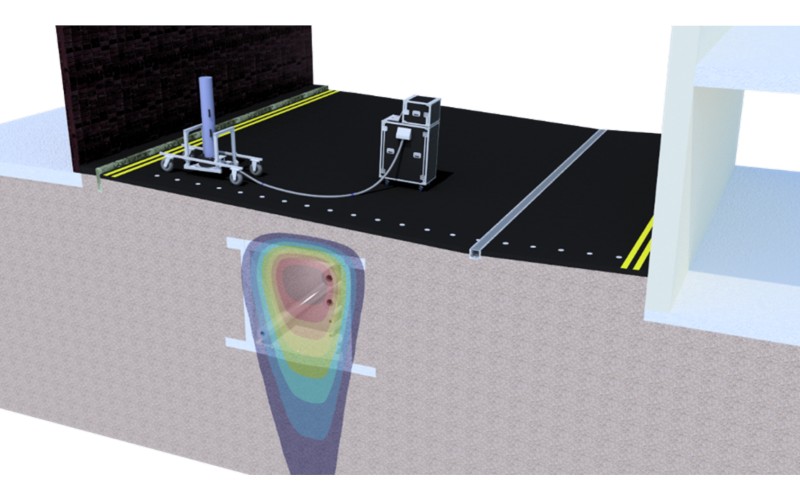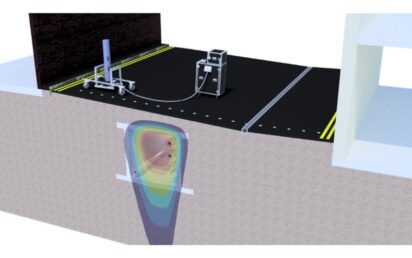Delta g, a quantum technology gravity sensing company, has raised £1.5 million in a pre-seed investment round to fast-track the commercial availability of its groundbreaking quantum sensors for mapping the underground.
Delta g has developed a revolutionary approach to mapping complex subsurface and unseen locations, having produced the world’s first field-proven quantum sensor for gravity gradiometry.
The company, which is led by CEO Pete Stirling and founded by Andrew Lamb, Jonathan Winch and Professor Michael Holynski, is a University of Birmingham spinout, based on technology developed at the Quantum Technology Hub for Sensors and Timing.
To fulfil vast infrastructure, development and repair projects, such as roadworks, the construction and utilities sectors rely on accurate surface-level information to enable the visualisation of underground locations. Yet existing cartographic tools are limited, whether this is poor ability to see past only the topmost layers, inconsistent measurements in varying ground conditions, a complete inability to measure in high-vibration environments, or slow measurements resulting in prohibitive time and financial costs of surveys.
Consequently, these tools struggle to accurately and reliably identify unexpected subsurface anomalies, from subsidence and sinkholes to existing utilities or old mine works, significantly adding to project time and costs.
Delta g uses gravity gradiometry to measure subtle changes in the pulling strength of gravitational fields when clouds of atoms are dropped. The bigger the object and the greater the difference in density of the object from its surroundings, the stronger the measurable difference in pull.
Its sensors are transportable and inherently immune to vibrational noise, driving down the financial cost of surveys and enabling more rapid measurements with greater sensitivity.
The round was led by Science Creates Ventures, with further investment from Quantum Exponential Group, Newable Ventures, Bristol Private Equity Club, as well as several angel investors, including Hitesh Thakrar and Howard Covington.
The company will use its new funding to embark on real-world trials with major industrial clients to demonstrate the efficacy of its approach and to further commercialise its technology, reducing the size, weight, power and cost of its hardware so that it can be deployed at scale in the field.
“The UK would massively benefit from delivering major infrastructure projects on time and on budget, and through increased productivity by reducing the time it takes to bring such projects to the point of benefiting people,” said Stirling.
“A big part of this is the difficulty found in mapping the complex unseen environments and hidden critical infrastructure that resides under the ground. Considerable budgets are allocated to ensure that unexpected obstacles can be overcome. On HS2 alone, the contingency for unforeseen ground conditions is £248m.
“Our goal now is to take the technology and shrink it down so that it’s easier to be deployed in everyday development, infrastructure and repair works. Given the broad applications across myriad industries, we’re hugely excited about our ability to use quantum gravity gradiometry to achieve vast cost-savings and pick up the pace of mapping work in a way that improves everyday life.”
In addition to its latest funding round, Delta g has been awarded a £500,000 innovation grant from Innovate UK to accelerate the delivery of a commercial product and begin the development of a sector-agonistic gravity gradient platform.
For example, Delta g’s sensors pick up gravity from every direction, making it appropriate for other environments such as tunnelling. Similarly, by tracking the gravitational position of an object in relation to its immediate environment, Delta g’s technology also has the potential to provide navigational positioning for vehicles and vessels, providing resilience against loss or denial of GPS.


